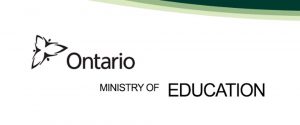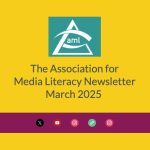An Open Letter to the Ministry of Education of the Government of Ontario
Why are Ontario students are missing out on the essential skill of media literacy? AML is concerned about the position of media literacy in the current Ontario curriculum. Written in 2005, the content lacks any references to smartphones or social media, the driving forces in communications culture today. These factors are shaping our current language, actions, culture, and politics – the way we live – and will continue to shape the way the next generation runs the world. Without the critical thinking skills to process their uses of technologies, learners will lack crucial executive functions and empathies for using technology effectively and ethically.
Aside from a limited presence in English/Language Arts, there is little specific or rigorous curriculum to support Ontario educators in the teaching of critical thinking competencies. Media literacy (i.e., critical thinking through and about media – their contents, technologies, and environments) was not extended from Language and English through any other subjects or literacies in the 2006 curriculum. Specifically, few expectations address students’ abilities:
- to distinguish authentic from false information
- to address the responsible use of social media
- to understand the mental and social effects of media environments
The growing proliferation of labels—digital literacy, information literacy, digital citizenship, transliteracy—each describing similar and overlapping curricular areas, has created a confusion that has resulted in diffuse and weakened funding and curricula, impeding the evolution of cross-disciplinary media literacy and therefore 21st century competencies. Using ‘media literacy’ as an umbrella term that brings clarity and critical thinking to information literacy, digital citizenship, and other overlapping labels can also help policy-makers and educators extend its critical thinking to support global competencies and transferable skills.
Students need to develop global competencies in all classes, but cannot without a specific and consistent cross-curricular application of critical thinking about the digital technologies and media environments that comprise the tools and contexts for 21st century learning. Every teacher who uses media should also teach media literacy, addressing the competencies that are relevant to her/his subject and lesson. Only then can we help students develop transferable skills.
In addition, designating ‘media literacy’ as the umbrella term for information literacy, digital literacy, digital citizenship, transliteracy, etc. will reduce policy-makers’ and educators’ confusion and diffusion of efforts and funding.
At this time, when education policy and priorities are being re-evaluated, the AML urges the Ministry of Education to consider expanding the term ‘media literacy’, with its critical competencies, across and through the K-12 curriculum to embed a full range of critical thinking skills.



